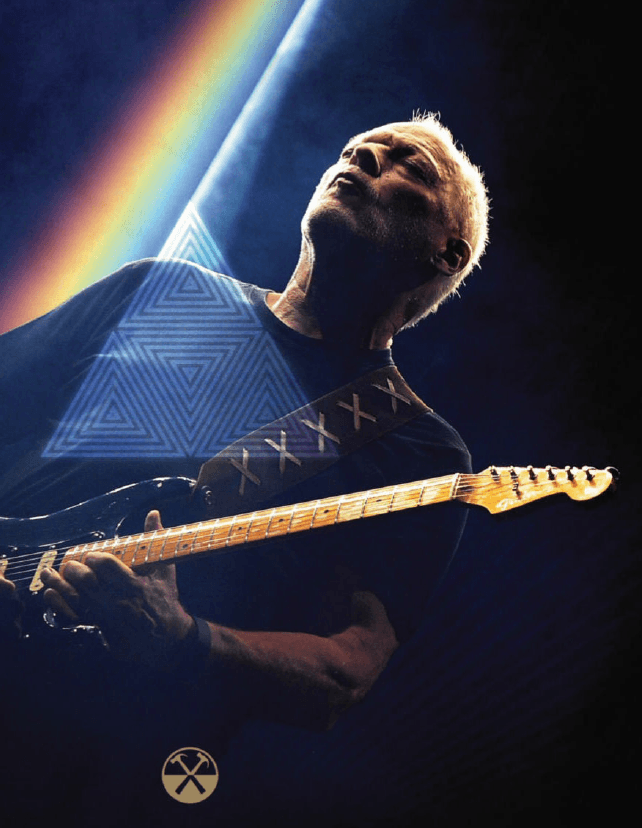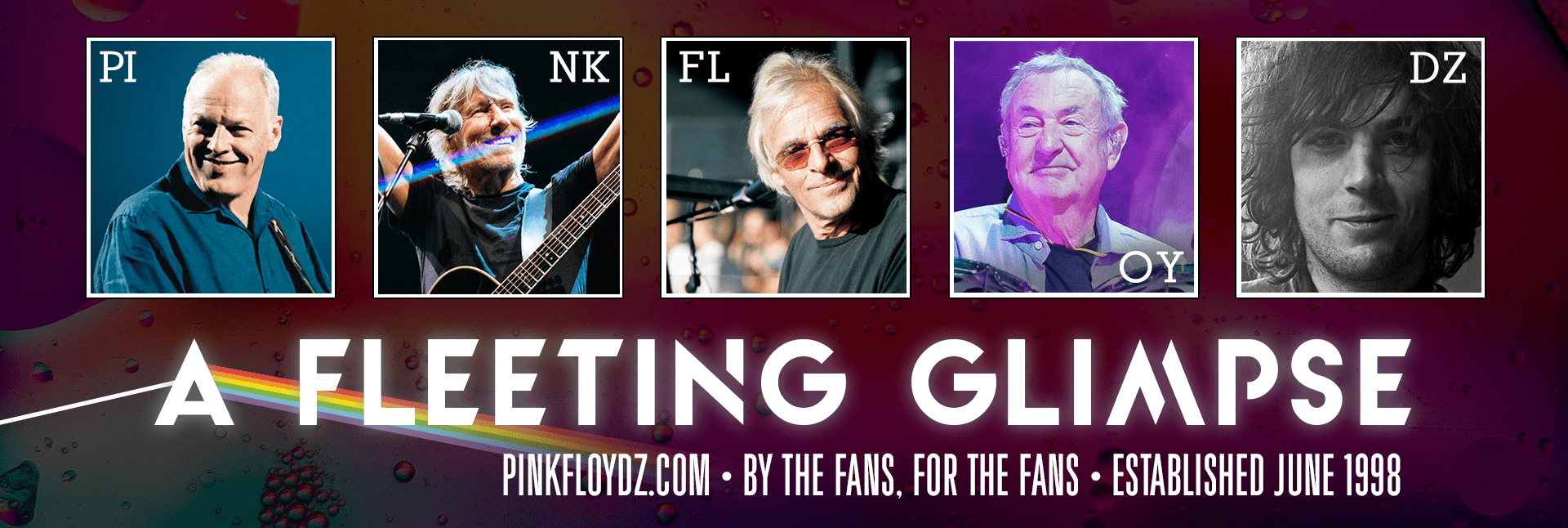David Gilmour : Guitarist Magazine Interview April 2019
 The first question is… how could you?!
The first question is… how could you?!
“[Laughs] The big picture is I want to raise some money. There are a lot of major problems in our world today in terms of refugees and starvation. I have a charitable foundation and the money will be distributed from there to the people that need it most throughout the world. It will be just a drop in the bucket, but many
will potentially benefit from this sale. That’s more
important to me these days.”
Do you have any sentimental attachment to your
instruments, or have you always thought of them
more as tools of the trade?
“That’s a difficult one. I had my teenage dreams of
having a Fender Stratocaster, and then I bought one and it was great. I still romanticise Stratocasters and some of these guitars to some extent, but the more-rational me does think of them as ‘tools of the trade’. While my Black Strat is special, I don’t feel I won’t be able to achieve just as much on a different guitar. So, yeah, I guess I’m not overly sentimental [laughs].”
We can understand that. Your Black Strat has been so heavily modified, in some ways it’s not even the Strat that you bought in 1970…
“The neck has changed two or three times, and I think maybe more than one pickup has been changed on it. There have been several modifications done to it, most of which have been undone again at some point. But that’s part of the reason it’s my special guitar. I worked out all my crazy ideas on it. I did add a little switch that allows you to select just the bridge and neck pickup, which isn’t possible on a normal Strat. It was an idea. I haven’t removed that idea, but I rarely used it.”
Of the 120 guitars that are being auctioned, which are the most valuable to you?
“Well, obviously, the Black Strat. It has served me extraordinarily well. It’s on all the Pink Floyd records from the 70s. The opening notes of Shine On You Crazy Diamond fell out of that guitar one day in 1974, and the solo on Comfortably Numb was done on that guitar. It’s really on everything during the 70s. My 1969 Martin D-35 is something I’ll miss. I used it for the lead parts on Wish You Were Here, and it was my main acoustic guitar through the 70s. I still use it all the time. It’s the nicest guitar I have for just plain, straight strumming. I’m auctioning my Martin D12-28, too, which is the 12-string I wrote Wish You Were Here on. I’m also auctioning my Ovation 1619-4 six-string acoustic that was very useful to me for a long time
because of its internal electronics. It’s also important because that’s the guitar I restrung using some of the high strings from a 12-string set, which inspired me to write Comfortably Numb. I used it for almost every live performance of Comfortably Numb through the years.”
What will you use moving forward?
“I’ll hunt something down that I’m sure will do the job just as well.”
There are so many more options these days. It was often difficult to find great guitars in the 70s…
“I guess so. But I do unrepentantly like the old ones. Older instruments have a tonality of their own that often takes years to develop. But these things go in waves. Acoustic guitar makers like Gibson and Martin went through periods where they were manufacturing beautiful guitars, then through periods where they tightened their overheads and made things that weren’t
so good. Eventually, they learned their lesson, and in the long run they went back to making great guitars again. Luckily, I know the periods of guitar and the types of guitar that I like, and I’ll eventually hunt down another 1969 D-35 that is as good as the one I originally owned. You just need to look in the right places and, as you say, there are a lot of them about these days.”
Do you mind if we ask what you are planning to hang on to? It doesn’t sound like much…
“There are a few things. I’m keeping a lovely old Gibson steel guitar that has a really beefy sound. I’m holding on to a black Gretsch Duo Jet that I really love, along with a 1945 Martin D-18. I also couldn’t bear to part with my ’55 Fender Esquire that I nicknamed ‘The Workmate’. It’s the one you see on the cover of my About Face album, and it was used on Run Like Hell from The Wall among other things.”
Does the auction signal your retirement in any way?
“Not really. I still write stuff all the time, and there’s no statement of intention to retire. I’m just unburdening
myself of a huge collection, which at some point will have to go. This just felt like a good moment to raise some good, hard cash for people who need it.There are a lot of beautiful old guitars in the world, and I can track down some replacements if I need to. And if I really feel desperate for something I’ve auctioned, I can find the person I sold it to and make them an offer they can’t refuse [laughs]! Inevitably, I’ll buy more guitars; I just don’t want to have a stock that I keep in a cupboard or in their cases for too long.“
